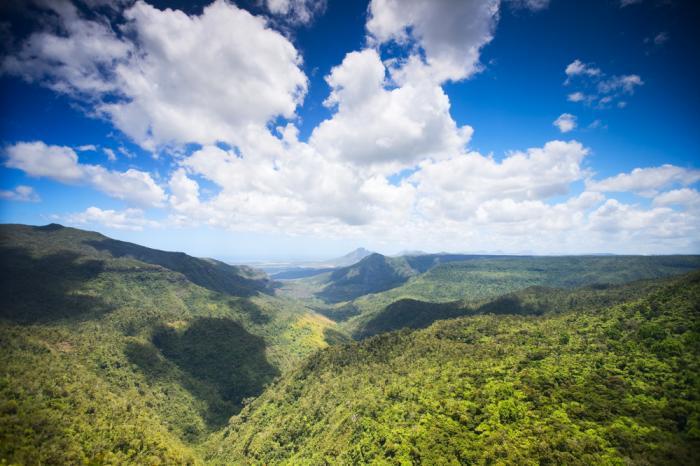Caroline G Staub
The overarching goal of this study is to understand the relative effects of climate variability and anthropogenic pressure on water availability in Mauritius.
This study seeks a deeper understanding of the interactions between humans, climate and changing water availability in Mauritius, a small island in the South West Indian Ocean. Specifically, this research will develop a spatial and temporal understanding of past rainfall variability and the drivers of rainfall variability in the South West Indian Ocean over the past 90 years, and quantify water availability in Mauritius under informed climate and demand scenarios. Understanding the relationship between climate, water and human activity on islands can help optimize water resources management and inform policy in the face of climate variability and increasing economic activity.

Tropical oceans play major roles in the natural variability of the world climate, and islands are key sources of long term ocean hydro-climatology data. However, very little inventories of water resources are available on islands. This study will be conducted in Mauritius, one of the few well documented areas located at the 20 degree South altitude. This research will be conducted at the country scale, to address the “scale mismatch” that characterizes on the - ground water governance for a more substantial contribution to water security research. This study will answer the following applied hydro-climatology questions: 1) How much does large-scale climate variability influence annual and seasonal rainfall variability in Mauritius? and 2) what are the impacts on regional water availability of different climate and demand scenarios?
The data, approaches and general conclusions pertaining to this study will be shared with local academic institutions involved in water-related research to promote further research on Mauritius and surrounding small Indian Ocean islands. This project will engage local experts, stakeholders and policy makers and set the stage for further discussion about water resources management and policy for the benefit of the rapidly growing economy and fragile ecosystems. Understanding the past relationship between climate, water and human activity can help optimize the management of water resources in the face of climate, land and population change, through an informed use of alternative strategies such as new reservoirs, interconnection of pipe networks and improvement of native forest cover in catchment areas.